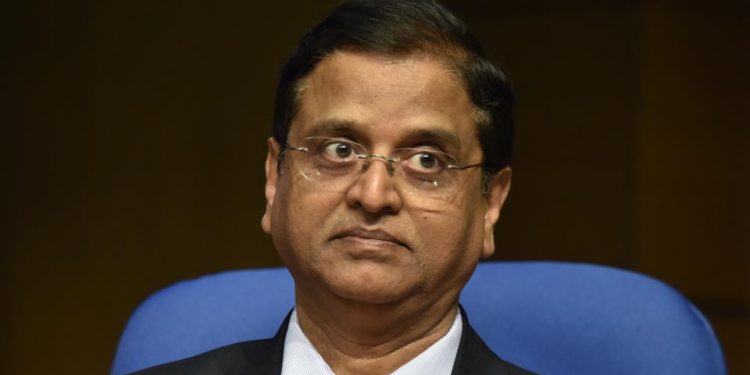New Delhi: India has adequate reserves and firepower to deal with the current volatility in rupee, Economic Affairs Secretary S C Garg said. Stressing that the situation is better than 2013, he said basic source of rupee volatility is demand supply mismatch.
“If you expect oil prices to go up, then demand supply mismatch sharpens, it also affects the behaviour of some. If they expect rupee to depreciate, then FIIs tend to behave in a certain way, it is all linked so it’s not isolated. We are not even certain what kind of a storm it is or even it is a storm or whether it will turn out to be a storm,” he said. The rupee closed at an all-time low of 68.79 on Thursday due to multiple headwinds, including concerns over inflation and weak global cues. The currency recovered lost ground Friday to touch 68.36 in afternoon trade.
“We have adequate reserves, there is adequate firepower. The option of raising this (FCNR-B) always remains. If we assess at some stage that capital inflows are likely to be less than current account and remittance deficit (then we can do it). This balance will get upset if trade deficit goes up by $20-25 billion and remittances are not going to expand that much.
“Export Services are also going to expand that much. This $ 20-25 billion gap can be handled. If we assess at any stage that we need to buttress or refurbish our reserves, the options are open,” he said.
Following rupee touching previous record low of 68.85, 2013, the then RBI governor Raghuram Rajan introduced Foreign Currency Non-Resident Bank (FCNR-B) deposits under which $ 32 billion came to India for three years.
There is huge market demand for Indian offerings whether it is Foreign Currency Non-Resident Bank (FCNR-B), sovereign bonds or but the situation has not arisen, he said. The volatility is not so sharp, not so big like you have seen it in other currencies also, he added.
On crude prices, he said fundamental supply demand imbalance was responsible for first spurt in oil prices. “Stability returned to (oil) prices; prices have gone down to $ 70-72. Now the new factor of how these (Iran) sanctions will be implemented, if they succeed in implementing the sanctions, in the way they are saying, and Iranian crude does not come to the market, then again the demand mismatch emerges. That balance gets disturbed, and this is causing some concerns to operators, therefore there is some pressure on oil prices,” he said.
Forgotten Census
The Union government says that the “Indian Census is the largest single source of various statistical information on various characteristics...
Read more





































